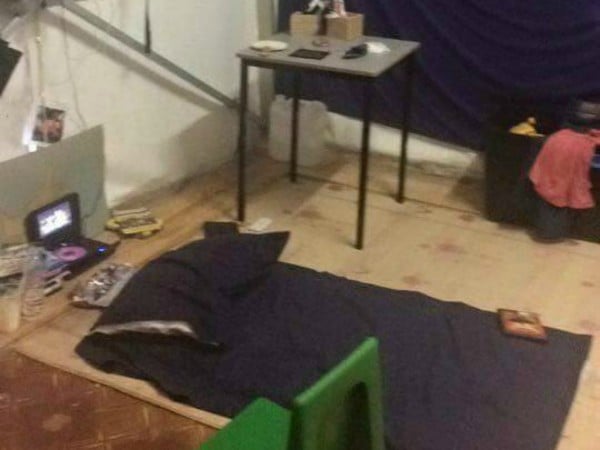
Earlier this month, four-year-old “M” and his family, who are asylum seekers from Iran, were moved out of their air-conditioned accommodation inside the Nauruan detention facility.
This is the third Christmas the infant will spend on Nauru — the island prison where he has lived for almost all of his short life.
On Christmas night — as every night — his bed will be a mat on the floor of a tent, now sweltering without air-conditioning.

When children detained on Nauru turn four (as M did in October), they and their family are moved from living in air-conditioned tents to non air-conditioned ones.
Top Comments
Ever visited Nauru? It is literally a remote island with a tiny population. It is not and susceptible to tropical weather which is disgustingly humid and rainy. That is not taking "care" of a human being. No one should have to live like that.
I guess the proud citizens of Nauru living in these disgusting conditions and who call it home are stuffed then. No one should have to live like that, right.
Yes no one should. It is extremely remote. The weather is horrendous. Access to healthcare is abysmal as there are very few doctors, let alone specialists. Medical facilities are poor. Career opportunities are non existent. Educational opportunities are limited. Absolutely the citizens would be proud of their country but I can guarantee you they would take our creature comforts any day.
I'm a little confused, are the family not in the safest place right now? Are the family not protected? Are the family not being provided with three meals a day? Yes all the comments so far are very valid, but what is the family's alternatvie to what they are currently enduring? They are safe, together, being caref for, no need to purchase anything to survive comfortably, isn't that what's important?
They are not safe, you don't bother to read anything do you? How can you be so racist and heartless, the cost to keep this baby in this hell is almost $1 million a year, and for what? So the racists can say we stopped the boats?
Nothing in mrs g's post indicated anything remotely racist. Just because someone has a different take on an issue DOES *NOT* make them racist.
This is a great example of why most of Australia no longer gives a rats arse about boat people. So pissed off are we about being called racist and heartless for the crime of objecting to criminals running our refugee program and people deciding to come anyway when we say no, come when we say so, that both major parties won't go back to open borders ever again.
Now call me racist and heartless as well, do your hardest, because that's all you've got left in your kit bag, abuse. That means you've utterly lost the debate. And the more you abuse others all you do is to strengthen their convictions. Votes in, you lost. Nobody cares nor believes the abusive names automatically thrown out for questioning the
Bleeding Heart - drownings and sovereignty don't matter position.